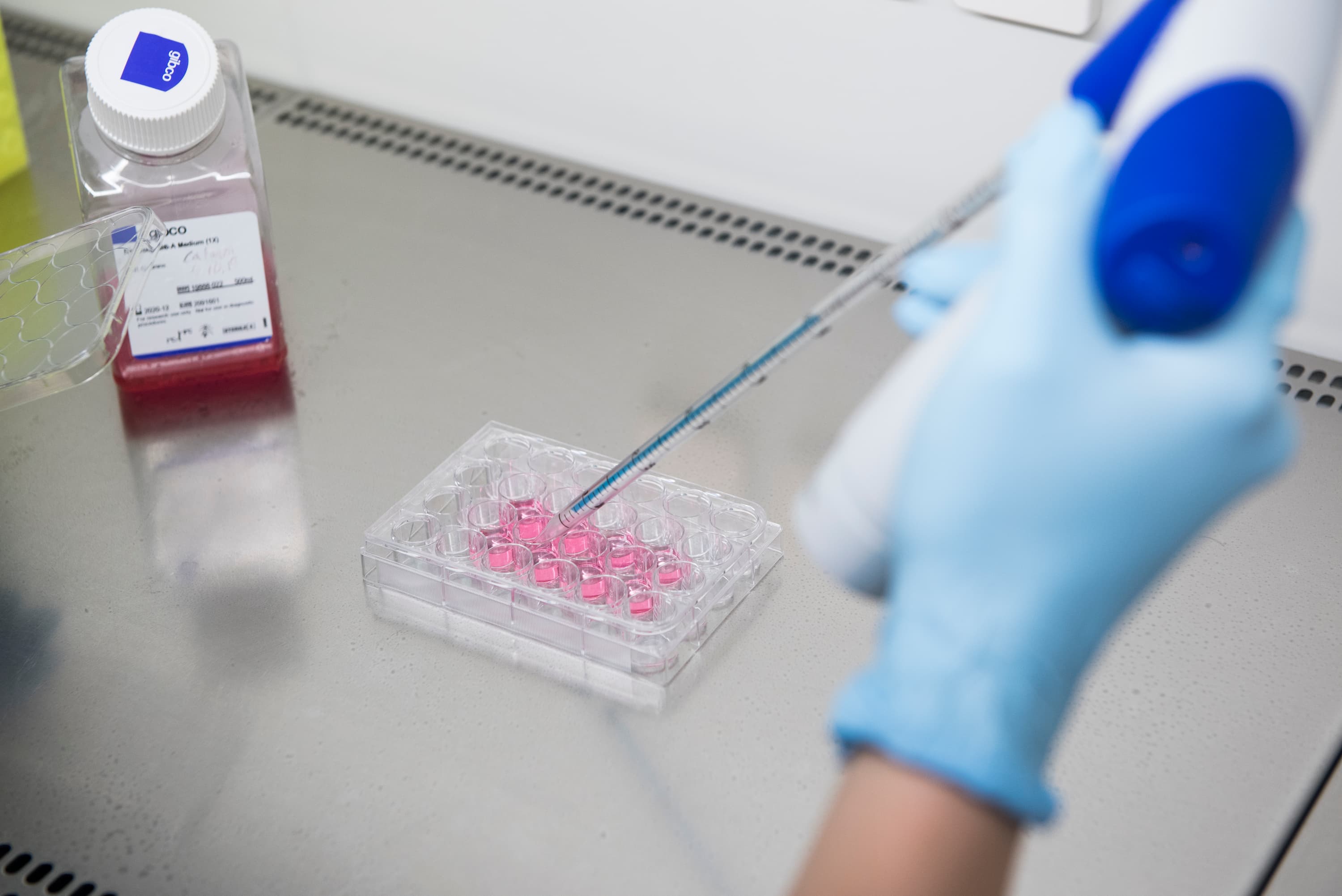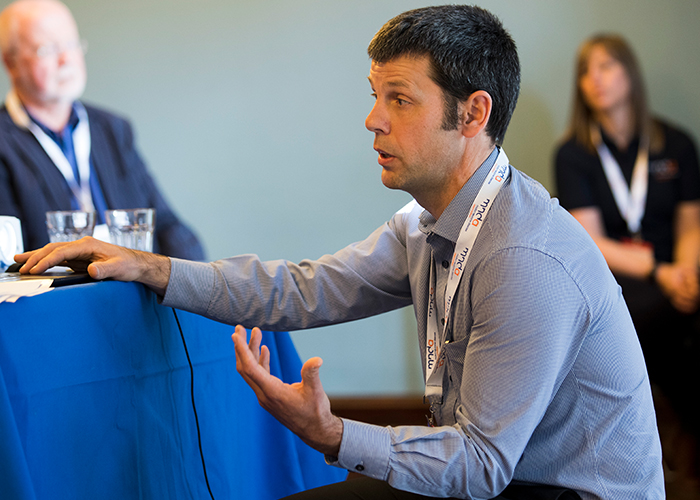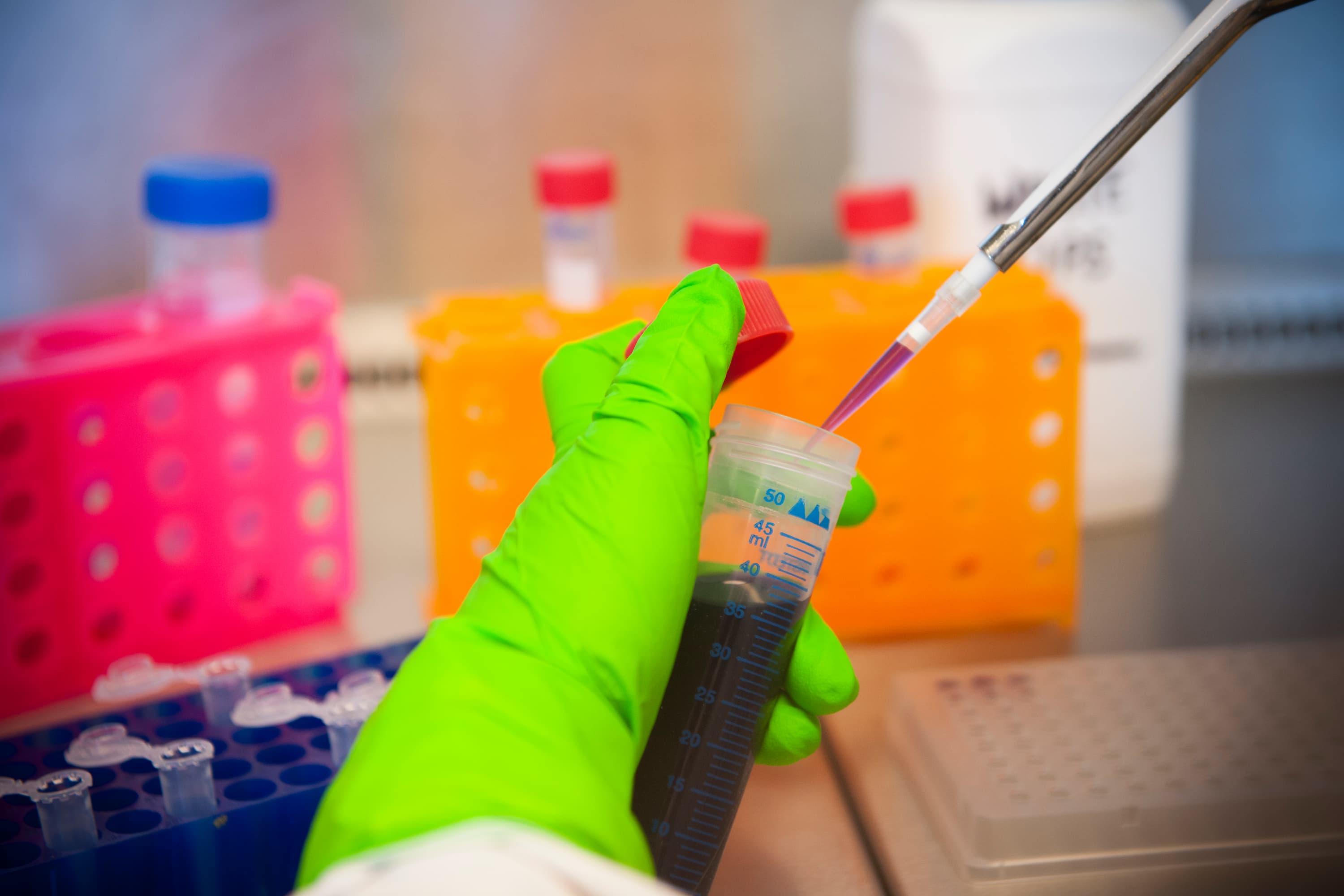Clinical trials are the ‘gold standard’ tests that ensure all potential new drugs are effective and safe. But before any new drug goes near a human, it has to be tested in the lab.
Getting to the clinical trial stage
Before the clinical trial can begin, researchers need to identify a ‘drug target’. This is something that has been found to help prevent an identified cause in the development or progression of MND. For example, it could be a faulty protein that causes the cell to self-destruct. By focusing on this specific protein, researchers can develop really targeted treatments with the aim of disrupting the process of self-destruction and hopefully slowing down the disease.
The first step of testing a drug then begins on ‘cellular models’ of MND, such as those grown from stem cells. If the cells survive longer than usual, it could be an indication that a drug is beneficial. That’s when testing begins on animals, so we can see how that drug acts on a complete animal system. If the drug is still working with no ill effects, we move on to the clinical trial stage.
You can find out more about our policy on animal testing here.
How does a clinical trial work?
Most clinical trials takes place in five phases – with the pre-clinical phase taking place in the lab.
Phase 1 – testing whether the drug is safe for humans
Phase 2 – testing what dose is needed
Phase 3 – testing if the drug is working better than the placebo (dummy drug used as a control in testing) on a more longer term basis
Phase 4 – testing if the drug is safe in real life
Who is involved in a trial?
Typically, trial centres would work with an agency to recruit participants for phase one, then go through clinics to recruit patients for phases two and three. We advertise opportunities for people living with MND to get involved in research – but the inclusion and exclusion criteria are usually strict, and unfortunately not everyone is the right fit for a specific trial.
Promising clinical trials happening right now
MIROCALS is a clinical trial testing a drug called Interleukin-2 as a potential new therapy for ALS. This drug increases the amount of one particular immune cell – the Regulatory T Cell – which is thought to protect nerve cells against damage. This trial will find out if raising the levels of Interleukin-2 in a person with ALS can slow down the disease. As MIROCALS was already known to be safe for humans it has gone straight to phase 2 of a clinical trial; saving valuable time and resource. You can read more about MIROCALS here.
TRICALS is an international research initiative in which the MND Association plays a key part, thanks to your support. The TRICALS consortium is currently preparing an innovative platform trial called MAGNET which will investigate multiple promising therapies for MND at the same time with a shared placebo arm. The design of the trial increases the chance for people to be randomised into a treatment arm rather than the placebo arm, therefore maximising the chance to find effective treatments. You can read more about TRICALS here.
You can read more about all ongoing trials on our website.
We’re always excited by the news coming out of research projects and clinical trials. Each one expands our knowledge and understanding of this disease – and brings us one step closer to a cure. And when we get there, it will be thanks to every single brave person who took part in a research trial – and the dedicated support of Cure Finders, like you, who make it all possible.


